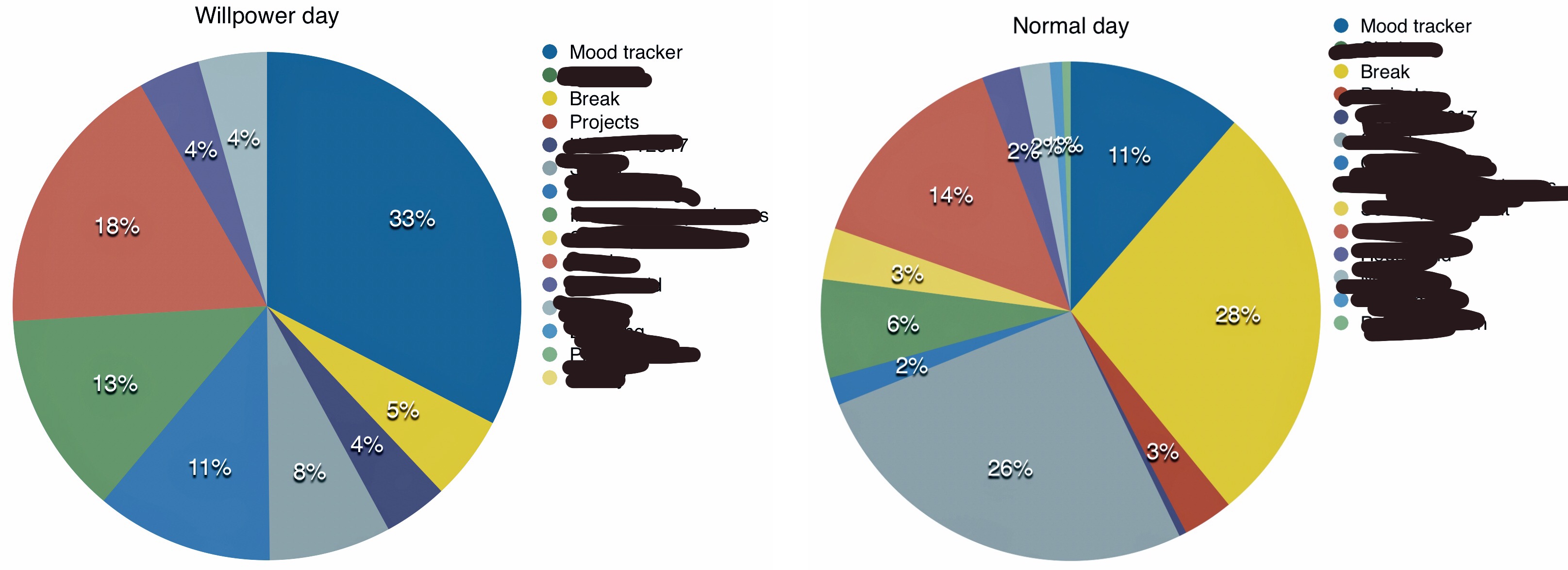Background
I noticed I wasn’t happy with the way I spend my time. Over the last year or so I learned to structure my work habits such that I need the least amount of willpower possible to get myself to work. I tried hard to get myself to do things without requiring willpower and, in the process, built somewhat of an aversion to do anything that seemed like it might require effort. For the most part, this was good: I learned to notice moments when I just didn’t have the mental capacity to do work, and so learned not to judge myself for sometimes not working and instead looking at comics on the internet.
On the flip-side, I have become dissatisfied with the amount of challenging activities I do in my non-work time. Too often, I spend my after-work time doing only effortless things, neglecting my desire to do low-but-finite-effort activities like reading, writing1, or even just tidying up the apartment for a few minutes.
It’s not that I never do anything useful with my time, but I feel like I could increase the quality-density of my time by making more of an effort. Additionally, maybe spending a bit of willpower will allow me to build a habit of taking fewer (or shorter) breaks and, generally, living (at least somewhat) faster.
The experiment
So I decided to do an experiment: For one day, I spend as much willpower as I can to combat my usual slowness and aversion to effortful tasks. On the object level, this meant roughly three things:
- When I’m taking time to relax, instead of watching cat videos, I’ll read things, take notes, etc.
- Whenever I’m feeling like I just want to take a break and not do anything, I’ll go against that urge and work anyway. The reasoning behind this is that, if it turns out I can’t focus in the moment, I can still stop working. But at least I don’t run the risk of underestimating my ability to work.
- I resist the urge to put tasks off if I can easily do them immediately.
The result
Overall, the results of this experiment are surprisingly unspectacular.
Getting up in the morning wasn’t a problem since I had an early call that I was looking forward to. After that, I tried, just for fun, to step into the shower before the water was at the right temperature. That worked … so … yay.
Looking at the way I spent my time during the day, it seems like noticing when I’m doing nothing, and then doing something instead, is a good idea:

I spent significantly more time working and less time doing “break” than on the average day.
What makes the experiment so unspectacular is that it turned out there were actually not that many situations where I could really change anything using willpower. I could will myself to go in the cold shower, sure, and I can will myself to read a bit more, but when I can’t think because my brain is all used up, there is nothing I can do about that. There are some emails I can will myself to write faster, but when I’m faced with a mental block because of anxiety or descision fatigue, what I really need is L-theanine, not more stress.
The final unsurprising finding is that I got extremely tired and needed to sleep for 10½ hours after the day, plus a 90-minute nap during the day. Wow. That’s 12 hours total! Okay, let’s start this paragraph over.
As a final finding, I was quite surprised with how much extra sleep my body required just from trying to work a little more. I already need a lot of sleep, but 12 hours is a bit more than I’m happy to accept. Two caveats to the surprise:
- Since I had an early morning call I slept only 7½ hours the previous night, which is a bit less than my average.
- I just today realized that there is no more caffeinated coffee in this house and I may just have been feeling strangely tired during the day because I was drinking decaf without realizing it.2
In conclusion
Using a bit more willpower seems good. Having regular designated willpower days may be good practice to get into the habit of being strong of will. Don’t overdo it though.